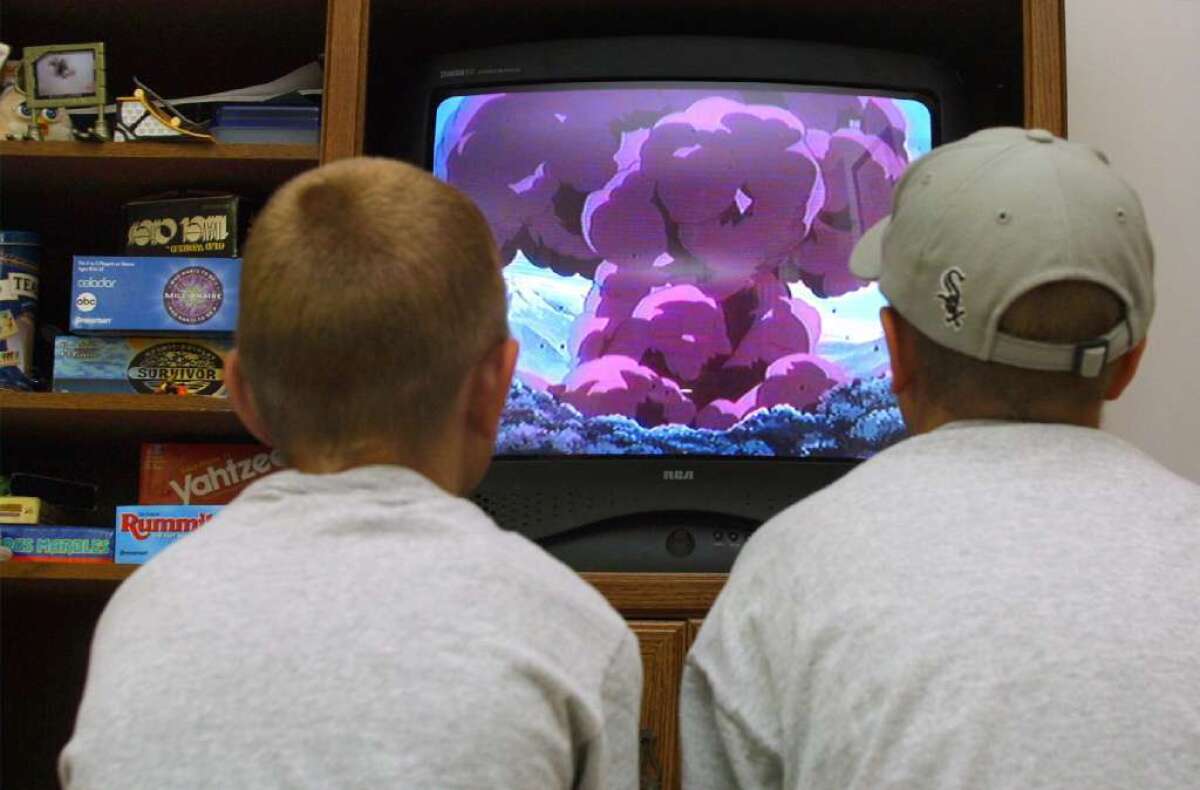Study makes surprising link between TV time and childhood obesity

- Share via
The ill effects of being a couch potato kick in fast for kindergartners, a new study suggests.
Kindergarten children who watched television for more than one hour a day were 52% more likely to be overweight than their schoolmates who watched less TV, researchers said Sunday. The kids who spent at least an hour each day in front of the boob tube were also 72% more likely to be obese.
These figures are based on data from 12,650 children from around the country who started kindergarten in the fall of 2011 and were enrolled in a study run by the U.S. Department of Education. Researchers measured the height and weight of each young student (which were used to calculate their body mass index), and parents were asked how much TV time their kids got.
The average amount of time this nationally representative group of kindergartners spent watching TV was 3.3 hours. When the researchers did their statistical analysis to link time spent watching TV with weight, they controlled for factors that might have skewed the results, like gender, race, ethnicity and socioeconomic status.
The researchers also took into account the number of hours the kids spent using computers, but it turned out that had no correlation with the children’s BMI.
One year after they entered the study, 10,853 of the children had their height and weight measured again, and their parents updated the researchers on their television-viewing habits. The results were once again striking: Compared to the kids who watched less than an hour of TV per day, those who watched an hour or more were 39% more likely to become overweight between kindergarten and first grade. They also were 86% more likely to become obese during that time.
The American Academy of Pediatrics recommends that children limit their total screen time — including time in front of the TV — to less than two hours per day. But these results suggest their advice may be overly generous.
“Given the data presented in this study, the AAP may wish to lower its recommended TV viewing allowances,” Dr. Mark DeBoer, a pediatric endocrinologist at the University of Virginia, said in a statement.
DeBoer will present the study results Sunday afternoon at the Pediatric Academic Societies annual meeting in San Diego.
Follow me on Twitter @LATkarenkaplan and “like” Los Angeles Times Science & Health on Facebook.







